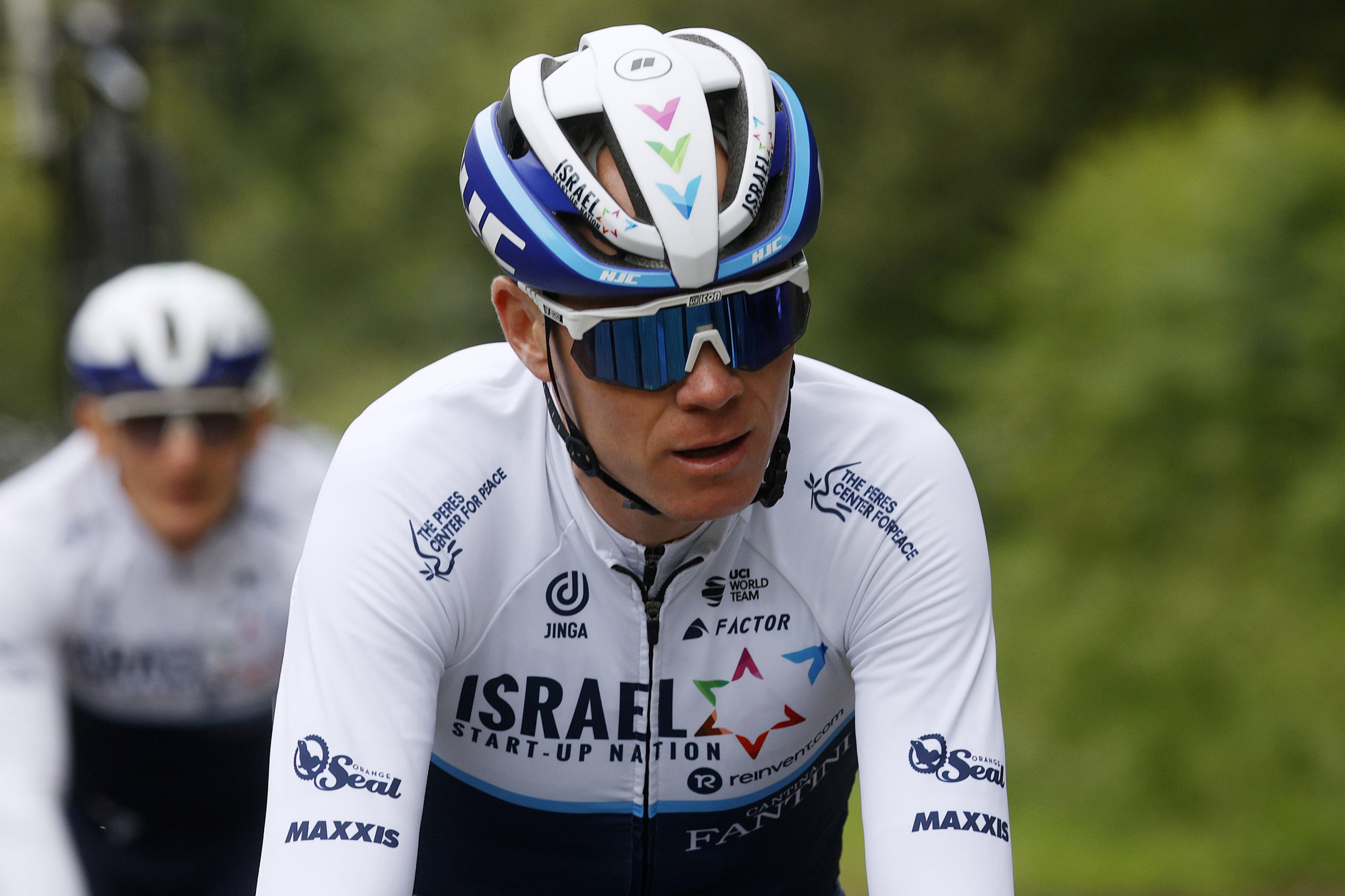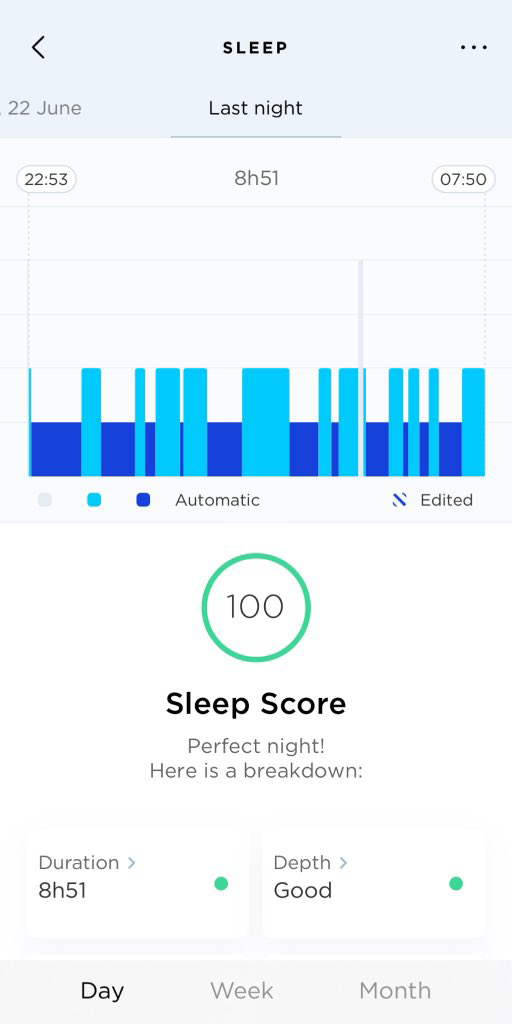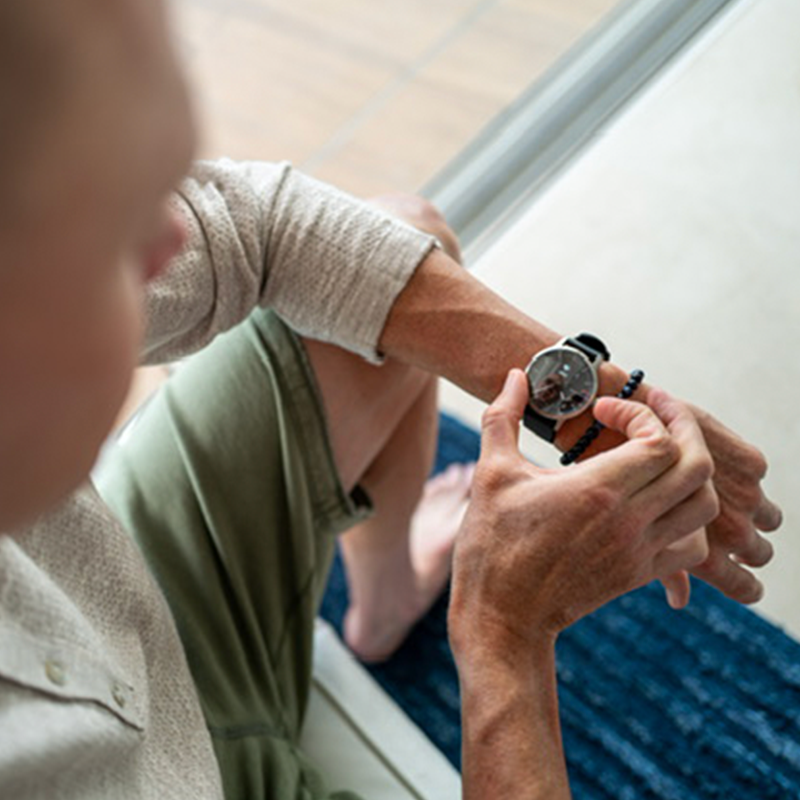
Beyond winning multiple tours and being one of the most well-known cyclists in modern history, Chris Froome is also a Withings user. On the eve of the 2021 Tour de France, Chris sat down with the Withings team to discuss his preparation for the race, how he harnesses data to train, his recovery from the 2019 crash, and other cycling insights. This article is one of two, so stay tuned for the next piece as Chris rides deep into the 2021’s Tour de France.
What data have you been tracking during your recovery that says you’re ready to be the road captain in this year’s Tour de France?
The road captain’s role is more about utilizing previous experience to then act with authority in making calls on next steps, especially when things get tricky on the road. But in terms of being physically ready for this year’s Tour de France, there are a lot of metrics that we’re looking at, and most of those would come down to power data, or basically peak power for anything from one minute up to 30 minutes.
I’ve also got weight goals from previous years that I can use as benchmarks for me to get down in terms of overall mass for the upcoming tour. I’m one meter and 85 centimeters (6 feet), so to get down to 67 kilograms (147 lbs), it’s pushing the limits of what’s possible, and I wouldn’t say it’s a healthy weight to maintain for a long period of time. But, that’s the weight I try to aim for in relation to the Tour de France and Vuelta a España, and from there it would naturally come up when I’m not in the middle of those races.
Having collected the data through all of the training camps this year with the team, I think we’re all happy that I’m in the right place to at least be competing in the Tour de France. I wouldn’t say I’m going to be going in there competing for victory this year. That’s certainly not going to be on my agenda, but definitely being there to help the team as much as I can and use my experience on the road to try and guide the guys around the race is my role this year.
How does sleep play into your training regimen? Do you implement the same restrictions and conditions that you would otherwise experience in competitions?

I can feel a massive difference when I actually get nine hours of sleep. It feels like no matter what training I’ve done the day before, I wake up feeling refreshed and more energized compared to getting six or seven hours. And honestly, sleep and sleep quality are properties we try to control, but there are so many variables. A lot of the time, you really don’t know what to expect from being in different hotels every night. We actually have a team that goes into the hotels to try and prepare the rooms the best we can. If the curtains or the shutters don’t block out light, the team will put paper up on the windows, and generally they try to reserve rooms that are on the back side of the hotel and away from the road so we don’t get the morning traffic coming straight through the windows.
And yet, there are situations where you just can’t avoid getting a bad hotel bedroom. A big thing, especially in the summer in France, is really high temperatures. Sometimes there’s no air conditioning in the room, so you can get really hot, even at night, especially if there are two of you in a small room when it heats up even more. So there are a lot of conditions that we’re trying to work with to maintain sleep quality throughout the race.
Is there a specific stage of France that you love cycling through?
Strangely enough, I’ve always really enjoyed the area of the Pyrenees in the southwest of France. I’ve always found it to be a lot more wild, more natural than the Alps. Of course the Alps are beautiful and very pristine and clean, a bit more like Switzerland in a sense. But I’ve always found the Pyrenees to be quite wild and the racing more aggressive typically as the gradients are steeper on the roads.
Will you be bringing any Withings products with you to track any metrics during the Tour de France?

A big focus for me during this Tour de France is going to be a really heavy look at sleep and quality of sleep. I’m definitely gonna be taking a ScanWatch with me and making sure that I’m tracking that every night. I’ll be putting that on straight after the stage every day, because it’s night and day if you race for six hours and 200 or so kilometers and don’t have a good night’s sleep; you can really feel it the next day, and you wake up and feel like you’ve been running all night.
I am also going to be keeping an eye on the SpO2 over the three weeks, especially given that the reading is medical grade on ScanWatch. It seems accurate every time I’ve used it so far. I’ve done a few camps up at altitude now, and I’ve seen my SpO2 levels start to drop at 2000 meters. That being said, I shouldn’t expect there to be many changes in SpO2 given that most of the race is at sea level, and we’re not going to be staying up at altitude for any long periods of time.
Have you kept anything from a certain bike you rode during a tour or anything that acts like a piece of memorabilia from any particularly meaningful competition?
I’ve had this thing over the duration of my career where every time I’ve won one of the Grand Tours, whether that’s Tour de France, Giro d’Italia, or Vuelta a España, I’ve always kept the bike that I finished on in the final city of the final day as a piece of memorabilia. And it’s not just the bike for the bike’s sake; there’s a customary process based on how you progress through the Tours.
Generally when you’re the leader of the Giro d’Italia, you have the pink jersey, for example, and as you get closer and closer to the end of the race, the team transforms the bike as well to be more and more pink in that case. It’s the same with the bike for the Tour de France. When you take the yellow jersey for the first time, they’ll give you some yellow bar tape on your handlebars, for example. But when it looks more certain that you’re going to keep the jersey all the way to the end, they’ll put a yellow seat on, then yellow wheels, and by the time you get to Paris, the whole bike is yellow, which is then something special to keep as memorabilia. I’ve got seven titles but only six of those bikes because unfortunately, the first title I won was given to me almost 10 years later since the guy who finished first was disqualified. So that was the one time I didn’t keep a bike from a grand tour.
Is there an area where folks come out to cheer you on the most?
Interestingly, I feel like racing this year in France has garnered me more support out on the roads than I’ve had throughout my whole career even compared to when I was winning year after year at the tour. I don’t know if that’s also a little bit of the French mentality where you always support the underdog, not the guy who is currently winning or anything like that. It’s been quite interesting to have been on both sides of that coin if you like, but I’m definitely feeling the love out on the roads in France at the moment, which is really great.
The Withings team will be sure to cheer on Chris Froome for the 2021 Tour de France. Read more in the next article where we cover Chris’s outlook on data trends in cycling, connected health, and weight management.


